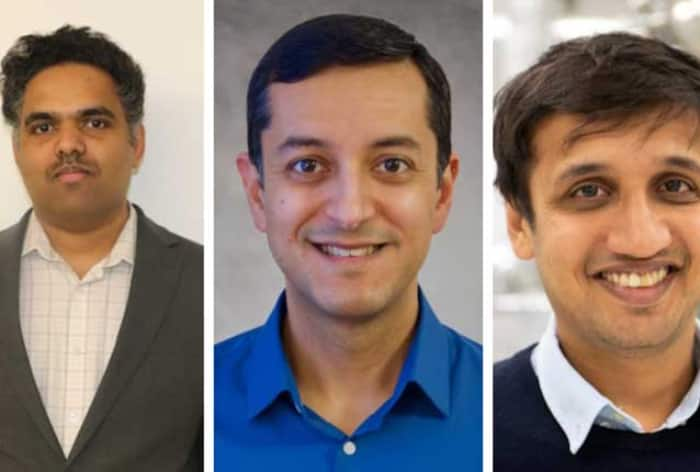
[ad_1]
The Blavatnik Awards for Young Scientists aim to recognize and support early-career scientists who have the potential to make transformative scientific breakthroughs.

London: Three Indian scientists have been awarded the prestigious Blavatnik Awards for Young Scientists in the UK. This year’s recipients include Professors Rahul R. Nair, Mehul Malik, and Dr Tanmay Bharat, who have made significant contributions in the fields of chemical, physical, and life sciences. The awards, which come with grants totaling 480,000 pounds, will be presented at a black-tie gala dinner and award ceremony in London on February 27.
The Blavatnik Awards for Young Scientists aim to recognize and support early-career scientists who have the potential to make transformative scientific breakthroughs. By providing recognition and funding at this crucial stage of their careers, the awards help bridge the gap between laboratory discoveries and real-world applications.
Sir Leonard Blavatnik, Founder and Chairman of Access Industries and Head of the Blavatnik Family Foundation, emphasized the importance of supporting young scientists. He stated, “Providing recognition and funding early in a scientist’s career can make the difference between discoveries that remain in the lab and those that have a lasting impact on society.”
About Professors Rahul R. Nair
Professor Rahul R. Nair’s pioneering work in the field of chemical sciences has led to advancements in materials science and nanotechnology. His research on graphene and other 2D materials has the potential to revolutionize various industries, including electronics, energy, and healthcare.
Using graphene and other 2D materials, his research aims to study the transport of water, organic molecules, and ions at the nanoscale, exploring its potential applications to address societal challenges, including water filtration and other separation technologies.
He will receive 100,000 pounds in unrestricted funds for his research that has provided valuable insights “into the movement of water and other molecules in nano-capillaries, as those movements differ from their behaviour on the macro scale,” the award statement said.
Professor Mehul Malik
Professor Mehul Malik’s groundbreaking research in the field of physical sciences has focused on the development of novel optical technologies. His work on quantum optics and photonics has opened up new possibilities for ultrafast communication, quantum computing, and high-resolution imaging.
His innovations enable the normally fragile entanglement to survive long distances and harsh conditions, laying the foundation for noise-robust and high-capacity quantum networks that securely transmit large amounts of information encoded on individual photons.
About Professor Tanmay Bharat
Dr Tanmay Bharat’s significant contributions to the field of life sciences include his research on bacterial infection mechanisms. His work has shed light on the molecular processes involved in bacterial pathogenesis and has the potential to inform the development of new strategies for combating antibiotic resistance.
Dr Bharat, a structural microbiologist and programme leader in the Structural Studies Division at the MRC Laboratory of Molecular Biology, has developed and applied cutting-edge cryo-ET techniques to create atomic-level pictures of cell surface molecules on microorganisms.
In addition, his work is also vital for the fundamental understanding of the dynamics of cell-to-cell interactions that led to the historical evolution of multicellular life on earth, a statement read.
Both Bharat and Malik will receive a grant of 30,000 pounds for their research.
Blavatnik Awards
The 2024 Awards received 84 nominations from 40 academic and research institutions and this year’s laureates were selected by an independent jury of expert scientists across the UK.
The recognition and support provided by the Blavatnik Awards for Young Scientists will undoubtedly propel these Indian scientists to even greater heights in their respective fields. Their pioneering work serves as an inspiration for future generations of scientists and highlights the importance of investing in early-career researchers. The awards ceremony in London will not only celebrate their achievements but also serve as a platform for collaboration and knowledge exchange among the brightest minds in science.
[ad_2]